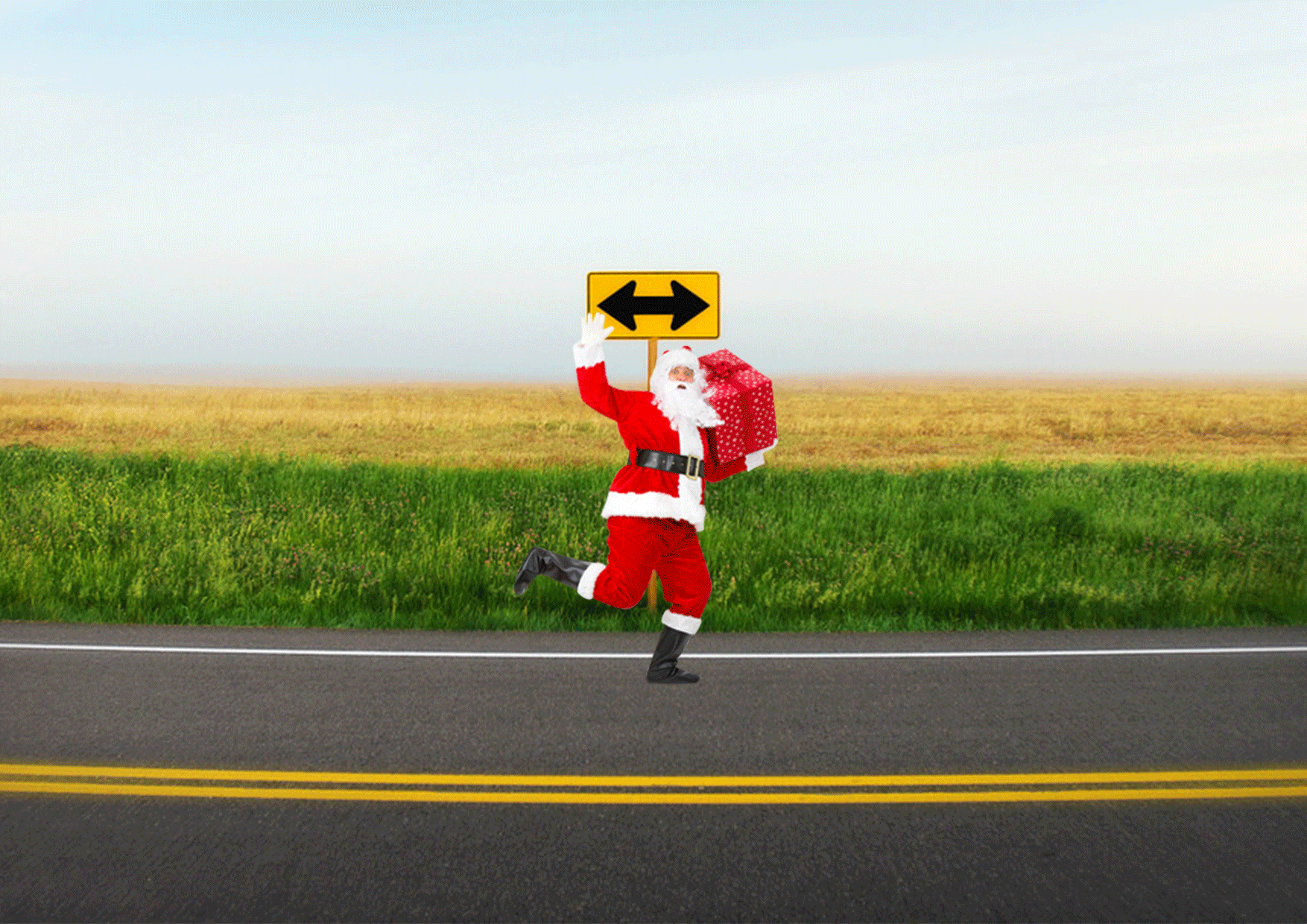‘Tis The Season ……. Not To Be A Road Statistic.

In 2015, the Australian and New Zealand road tolls were 1209 and 319 respectively. These were the highest recorded in three years, bucking a downward trend that had existed for more than a decade. Based on current numbers, the prediction is that Australia will finish the year at around 1270 and New Zealand at 335. Similar trends exist in other parts of the western world.
Why is this happening now?
A naturalistic driving study (these types of studies measure real-life driving using in-car video cameras, eye trackers and sensors) found that inattention was a factor in 78% of all crashes and near misses. This included in-vehicle use of mobile devices, glancing away from the road, fatigue and other non-driving related eye glances.
Could it be that our modern lifestyle is helping us be more inattentive?
During the last few decades, the road toll in western societies has come down year on year. The two main reasons for this are:
The improved safety aspects of the roads. This includes the building of dual carriageways, crash barriers and clear line-of-sight intersections (abolishing blind corners).
The improved in-built safety features of vehicles. This includes incorporating ABS, air bags and proximity technology that warns us or acts on our behalf.
What we haven’t done much about is to improve the skills of the driver. More interestingly, we haven't considered the impact of improving the roads and vehicles on the driver's ability to remain attentive.
There is a saying immortalized by Jane Austen in the novel Emma that explains this:
“The more you do for them, the less they will do for themselves”
Maybe, we have progressively conditioned people to do less for themselves.
These days, technology does a lot of our thinking for us. Being fed so much information re-wires our brain to expect to be made aware of things, such as when someone is in the lane next to us. The result is that we condition ourselves to become less attentive. This happens automatically, without our knowledge, awareness or permission.
But the problem is that most of the time when we are inattentive, nothing "bad" happens. So, any mistakes made do not even register with us.
During the festive season, inattention increases because we experience more rushing, frustration and fatigue while trying to finish things off and get ready for Christmas.
Community messages about planning to avoid rushing, frustration and fatigue help. Anything we can do to prevent ourselves from being in a position where we need to speed, lose our cool or be fatigued on the road is a good thing. However, life is unpredictable, so we can’t just rely on things going to plan.
Telling ourselves “not to speed” or “not to get hot under the collar” or “not to drive if tired” can help, but is not particularly reliable. We tend to get into these states automatically and inattention results.
We need to be able to recognise when we are rushing, frustrated or fatigued and make ourselves slow down, calm down or rest. Easier said than done. How well we do this, of course, can be a conscious decision but it is more reliable to make it a habit. That takes practice.
Wishing everyone a safe Christmas and Prosperous New Year.
This blog is an excerpt from Third Generation Safety: The Missing Piece by Cristian Sylvestre.
Cristian takes what neuroscience is revealing about how the brain functions, explaining how human performance could impact personal safety and what individuals and organisations can do about it. TO BE RELEASED SOON




















